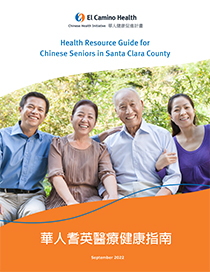
Emotional Self-Care
請點擊此轉換成中文
Stress is a normal part of life, and stressful events are inevitable. Dealing with day-to-day pressures, family needs, financial problems, relationships woes, and global uncertainty can all cause periods of chronic stress. Chronic stress is described as a consistent sense of feeling overwhelmed or pressured over a long period of time. It can affect both mind and body and can take a toll on your ability to function normally in your daily life.
Taking the time to nurture yourself can make all the difference. Physicians recommend “emotional self-care” to help you manage stress, lower your risk of illness, make you more resilient, and maintain balance in your life. There are many ways to develop emotional self-care. You could practice QiGong, take a walk at lunch, prioritize sleep, be social, learn a new craft. Build a routine that works for you. Self-care is an ongoing process.
The Chinese Health Initiative has collaborated with emotional well-being experts to assemble the following tips, advice and resources to help you develop personalized methods of “self-care” to help you maintain emotional well-being.
Self-Care Has Never Been More Important
Self-care is what you do to take care of yourself to stay physically, mentally, and emotionally healthy. Research suggests self-care promotes positive health outcomes, such as fostering resilience, living longer, and becoming better equipped to manage stress.
Here are a few self-care tips to get you started.
- Take time for you. Even if it is 10-minutes each day relaxing by yourself, a little solitude can help you unwind.
- Sleep better. Your behavior during the day and especially before bedtime can have a major impact on the quality of your sleep. Check out the CDCs good sleep habits. Even a few slight adjustments to your routine can mean the difference between good sleep and a restless night.
- Eat well. Good nutrition is essential to self-care. Your relationship with food can create a sense of balance in your life.
- Get moving. Even mild exercise will help calm your mind and lower stress levels. Aim for 20 minutes several times each week. If you’re not up for a high energy workout, find a leisure activity that you enjoy, like working in the garden, washing your car, or taking a bike ride.
- Find ways to relax. Focusing attention on your breath, practicing guided meditation, doing yoga, or walking in the woods can help quiet your mind.
- Schedule time with friends or family. Maintaining social connections is an integral part of self-care and helps build your sense of belonging.
- Do something you enjoy every day. That might mean listening to music, getting lost in a good book, dancing, or watching your favorite TV show. It doesn’t need to be complicated. Self-care covers a wide range of things from the most basic, like making sure you’re eating healthy foods, to practicing mindful movement.
Emotional Management: Part I
By Wei-Chien Lee, PhD, clinical psychologist
Emotions are innate protectors. When we have emotional responses, it indicates that something requires our attention. Just like traffic lights - red means stop, yellow is a warning, and green tells us to go ahead. Emotions are like signal lights, and understanding and responding to these signals is emotional management.
Emotions are signal lights
If we want to understand a different language, we take the time to learn, comprehend, and listen. However, we often don't have the opportunity to learn, understand, and listen to the "language of our heart" - our emotions.
Click here to learn more and download the full PDF.
Emotional Management: Part II
By Wei-Chien Lee, PhD, clinical psychologist
Emotional management is something that everyone can achieve by learning new behaviors, new methods, and continuous practice.
Emotional Management Steps
Adding Factors for Emotional Stability
- Physical Health
- Adequate Sleep and Rest
- Good Nutrition
- Regular Exercise
- Avoiding Tobacco, Alcohol, and Drugs
Click here to learn more and download the full PDF.
Enhance Your Emotional Well-Being Webinars
Workshops conducted in Mandarin by clinical psychologists where they outline practical suggestions that can strengthen physical and emotional well-being.
Recordings now available:
Watch other Emotional Well-Being topics on YouTube.
Mindful Self-Care Series
Developed by the Chinese American Coalition for Compassionate Care (CACCC) and the Zen Caregiving Project (ZCP). A six-week workshop to experience how to take care of ourselves to improve overall physical and mental health. Covers mindfulness, cultivating compassion, self-care, mindful communication, maintaining healthy boundaries and building resilience through sharing. This training is conducted in Mandarin.
For registration and more information, visit the CACCC website.
CHI Wellness Newsletter
Receive the latest health information, expert advice, invitations to events & more.
Sign-up Now



